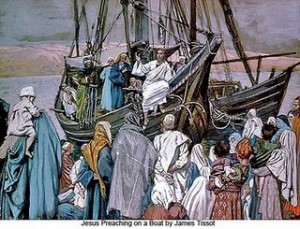 In today’s Gospel (Matt 13:1-9), Jesus, because of the massive crowds pressing in on him, has to get into a boat and push off into the water. That’s the only way he’s going to get them to listen – they are forced to stand on the seashore and hear the message of the Kingdom of God. In this case, it’s the quintessential Kingdom parable – the parable of the sower.
In today’s Gospel (Matt 13:1-9), Jesus, because of the massive crowds pressing in on him, has to get into a boat and push off into the water. That’s the only way he’s going to get them to listen – they are forced to stand on the seashore and hear the message of the Kingdom of God. In this case, it’s the quintessential Kingdom parable – the parable of the sower.
Many scholars of the Gospels have posited a theory called the “Messianic Secret” in Jesus’ ministry: after Jesus heals people or exorcises demons, he often tells the recipient of the healing to keep quiet about what has happened. Why? Jesus’ identity – according to this theory – must be kept quiet until the appointed time to reveal it.
Hogwash. As one of my finest professors, New Testament scholar Craig A. Evans of Acadia Divinity College used to say, Jesus is the Messiah and knows it. He wants others to know it. His words and actions are practically screaming it out, without using the term itself. The reason Jesus doesn’t want his healings and exorcisms publicized has nothing to do with keeping a secret.
In the ancient world, about 1/3 of the population are very sick at any given period of time. Jesus is a one-man, walking health care clinic! Add to that the significant number of demonic possession cases, and there is no wonder that once word gets out about this, huge crowds press him, just trying to touch even the fringe of his garment, knowing they could be healed. Now, that’s all well and good, but it gets in the way of the main message – how one can enter the Kingdom of God. How one can be healed body and soul for eternity, not just for a short time in the body only. First, the message of the Kingdom. The healings and exorcisms are the evidence of the veracity of that message, not the message itself. And that’s why Jesus has to teach from the boat. It’s crowd control!


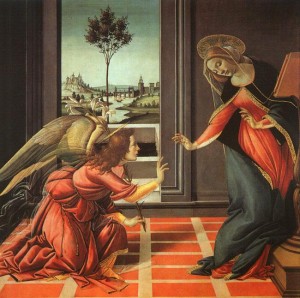 Today’s Gospel reading gives rise to a common non-Catholic assumption (pardon the pun) about Mary:
Today’s Gospel reading gives rise to a common non-Catholic assumption (pardon the pun) about Mary: The Catholic Register’s intrepid Sheila Dabu has written some front-page news about
The Catholic Register’s intrepid Sheila Dabu has written some front-page news about 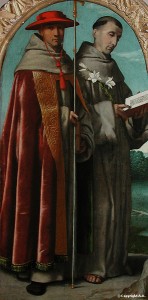 Yesterday was the feast day of St Bonaventure. Although much could be said about the Seraphic Doctor, I’d like to focus on this: he was a proponent of a fascinating apologetic, called the Kalam cosmological argument.
Yesterday was the feast day of St Bonaventure. Although much could be said about the Seraphic Doctor, I’d like to focus on this: he was a proponent of a fascinating apologetic, called the Kalam cosmological argument.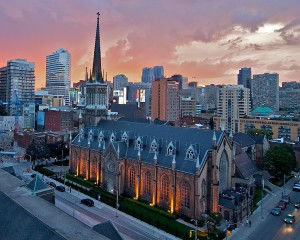 Neil McCarthy, the illustrious Public Relations Director here in the Archdiocese of Toronto, has posted an
Neil McCarthy, the illustrious Public Relations Director here in the Archdiocese of Toronto, has posted an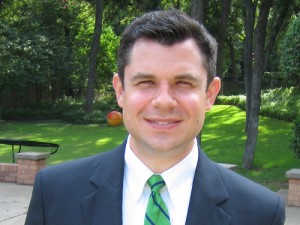
 Today’s first reading at Mass is the famous vision of the prophet Isaiah (Is. 6:1-8):
Today’s first reading at Mass is the famous vision of the prophet Isaiah (Is. 6:1-8):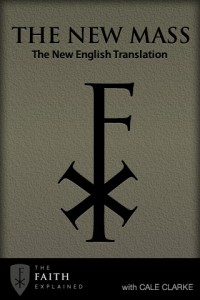 It’s finally a reality!
It’s finally a reality!
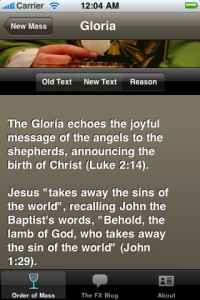
 In yesterday’s Gospel reading at Mass, Jesus talks about what’s become known as the Golden Rule:
In yesterday’s Gospel reading at Mass, Jesus talks about what’s become known as the Golden Rule: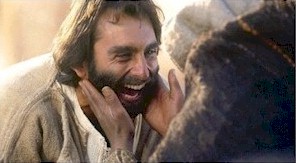 In today’s Gospel reading from Matthew 7, Jesus says this:
In today’s Gospel reading from Matthew 7, Jesus says this: